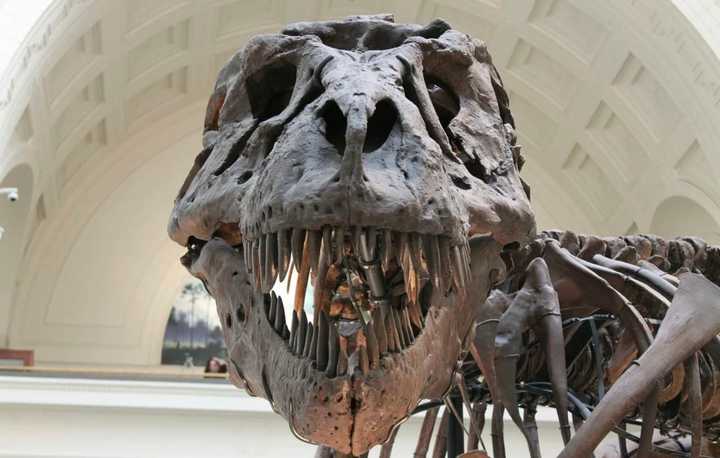At least one state representative thinks so and Massachusetts may need to hurry up and pick an official state dinosaur before all the good ones are snapped up.
Rep. Jack Patrick Lewis, 7th Middlesex District, said he plans to file legislation on Jan. 15 to declare a “State Dinosaur.” The prehistoric animal would be akin to declaring the corn muffin the official muffin of Massachusetts or how the Black-Capped Chickadee is our state bird, according to the Massachusetts Secretary of State.
Lewis is taking an online poll right now to see which dinosaur people think should be the official dino of Massachusetts. Anyone living or working in Massachusetts is welcome to vote.
There are already 12 states with official dinosaurs - Connecticut’s is a Dilophosaurus.
In Massachusetts, Lewis has proposed the following thunder lizards to represent the Bay State:
- Podokesaurus holuokensis - The name means “swift-footed lizard of Holyoke,” Lewis said on his polling website. The meat-eating species grew to about 3-6 feet in length and weighed about 90 lbs. Podokesaurus was found in Holyoke in 1910 by Mignon Talbot - the first woman to name and describe a dinosaur. The only known fossil of the animal was ruined in a Mount Holyoke College fire, but casts of the bones remain.
- Anchisaurus polyzelus - The name means “much sought after near lizard.” The plant-eating dino was first discovered in 1855 in Springfield and it is among the earliest dinosaur remains from North America. The creatures grew to about 6.5 feet long and weighed 60-75 lbs. Their bones were often mistaken for human bones. Specimens are kept at the Amherst College Beneski Museum of Natural History.
“They aren’t the largest dinosaurs to roam the planet [but] they begin to tell the story of how dinosaurs came to rule the Earth,” Lewis said.
Massachusetts has a deep connection to dinosaurs, especially in the Western part of the state where fossils have been discovered. There are nearly 60 fossil sites in Massachusetts, according to fossilspot.com. The area has also revealed many dinosaur tracks preserved in river mud and clay.
To vote on the Massachusetts State Dinosaur or for more information, visit the poll online.
If the link doesn't work, paste this into the URL
https://docs.google.com/forms/d/e/1FAIpQLSflfOrpqmuftXT-YJD4t-gPSbYhB1Sw3-0BmwIDjGHReMcRzw/viewform
Click here to follow Daily Voice Amherst and receive free news updates.


